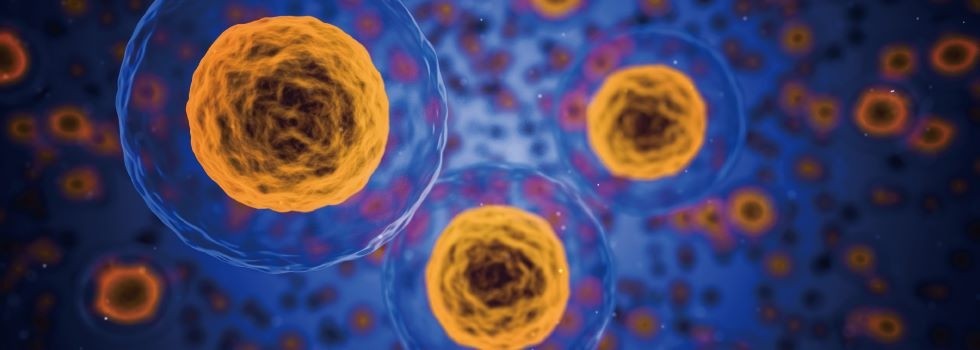Promotional Features
How plant peptones are emerging as a sustainable organic nitrogen source for fermentation and cell culture media
The origin of protein hydrolysates as a source of nitrogen for microbial fermentation can be divided into three main categories: animal, microbial and plant.
Animal source peptones These are mainly divided into two types: casein peptone and collagen peptone. The total amino acid content of animal-sourced peptone is high, up to 80-90%, and is often used as a basic N source for microbial culture. Animal-sourced organic N sources are subject to safety risks such as BSE, swine fever. Furthermore, because they are derived from animals, they are not suitable for some special or religious dietary restrictions.
Microbial source peptones Yeast is one of the simplest unicellular, eukaryotic organisms, containing all functional components and nutrients required in the entire life cycle. Yeast extract/peptone consists of about 70% of amino acids and peptide fractions, as well as around 10% of nucleic acids, 5% of carbohydrates and 10% of micronutrients, particularly B vitamins.
Plant source peptones Plant peptones are mainly derived from various types of plant fruits, such as soybeans, peanuts, wheat and peas. In addition to providing protein, it also contains carbohydrates, small amounts of fat-soluble components, such as vitamins, phospholipids, nucleic acids and other growth factors.
Plant proteins are typically used as nutrient storage proteins in plants, and their protein composition is relatively fixed, protein components, structure and sequence are well defined, and the amino acid composition of different plant proteins is significantly differentiated.
A move towards plant-based ingredients
Historically, biomanufacturers have used organic nitrogen sources of animal origin. However, an increasing number of food fermentation and biopharmaceutical companies are now requiring the use of where a choice exists, materials from “non-transmissible spongiform encephalopathy-related animal species” or “non-animal origin” are used to minimize safety risks.
Furthermore, biomanufacturers may consider plant nitrogen sources as a more sustainable and ethically acceptable option in biomanufacturing. Plant peptones therefore can be viewed as an excellent alternative to animal peptones for application in products which are required to be free from animal-derived components. Applications include food fermentation raw materials, probiotic fermentation, cell culture, biopharmaceuticals, bio-agriculture, as well as food flavoring, special medical food, and nutritional health products.
In studies conducted by Angel Yeast, wheat peptone FP220 tested significantly better than other nitrogen sources, with glutathione (GSH) production reaching 2 to 3 times that of other nitrogen sources. In addition, wheat peptone is rich in about 30% glutamine, which is an essential nutrient for animal cell growth and a precursor substance for some cosmetic and pharmaceutical ingredients such as hyaluronic acid. Wheat peptone can stably supply glutamine to microorganisms and animal cells to obtain high growth viability and metabolite expression.
In another study by Angel Yeast, soy protein with an amino acid composition close to that of meat was selected for controlled enzymatic digestion to obtain PU040, a hydrolysate rich in oligopeptides and free amino acids. The addition of different concentrations of hydrolysate to this basal medium was found to promote cell growth and maintained cell viability longer. The data confirmed that PU040 is rich in small molecule peptides and free amino acids which are easily absorbed by cells.
Controlled enzymatic digestion and quality control
Enzymatic digestion is the key link in the production process of plant source peptones. This directly affects the degree of hydrolysis, free amino acid level, peptide size, peptide amino acid composition and the abundance of growth-promoting peptides and, in turn, the quality of the end product. By resolving the primary structure of plant proteins and analyzing the enzymatic cleavage sites of enzyme preparations, the peptide segment size and the amino acid composition of peptides of protein hydrolysates can be achieved in a controlled manner.
The choice of raw materials is also an important part of the quality of plant peptones. Apart from slight differences in amino acid composition, plant proteins of different origins differ significantly mainly in growth factors such as vitamins and mineral elements. Meanwhile in production, the precision of extraction and separation, drying conditions and the supporting equipment will all affect product quality, especially the appearance and stability of the final product.
Driving forward plant-sourced innovation
Angel Yeast is well positioned to drive the plant-based peptone market forward. In 10/2022, the company opened an intelligent production line for plant nitrogen sources in Binzhou, Shandong province, to support manufacturers in Europe and further afield as global markets transition to animal-free organic nitrogen sources.
The operation has the potential to produce 5,000 tonnes of a wide range of peptones derived from soy, wheat, corn, and pea, and is poised to expand Angel Yeast’s global portfolio of nitrogen products and yeast-sourced fermentation nutrients. In addition, it has the potential to develop further categories of organic plant nitrogen sources to satisfy market demands and customer needs, in addition to offering customization services to manufacturers.




